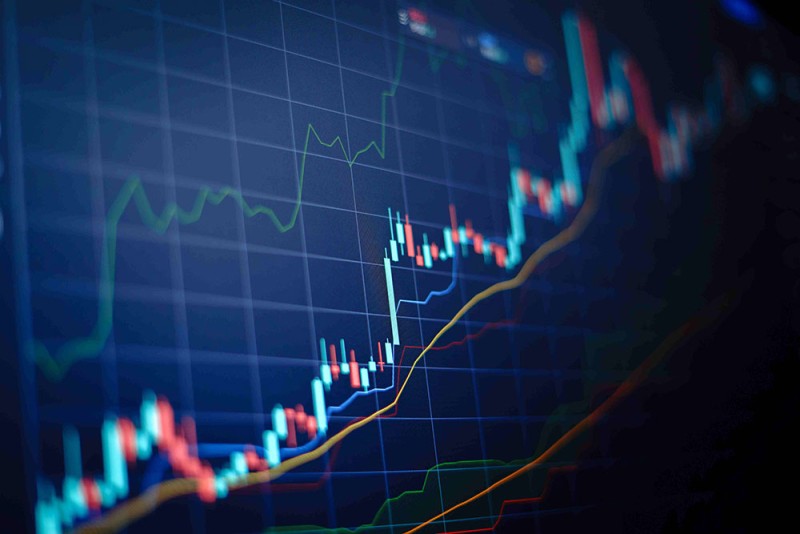So, all factors point to the idea that a particular stock is going to rise in price. Normally, you'd buy it and hope it goes up so you can sell it later for a profit, right? But what if you don't have enough capital to buy the entire stock outright? This is where CFDs come in.
But what exactly are CFDs all about?
CFD 101
CFDs, or Contracts for Differences, let you speculate on the price movements of an asset without actually owning it. They're like a contract with a CFD broker, where you agree to exchange the difference in price between when you open the contract (buy) and when you close it (sell).
Let's say you believe Apple (AAPL) stock will rise. You can open a CFD trading account, or even what is a funded account—to 'buy' it at USD$150 per share.
If AAPL goes up to USD$160 and you close the contract, you would profit from the USD$10 difference per share. However, if it goes down to USD$140 and you close the contract, you'll lose USD$10 per share.
Practicing sound CFD trading strategies with proper risk management can lead to significant profits. But it's a double-edged sword. Just as you can get some massive profits, you can also magnify your losses, thanks to market volatility. FYI, in 2022 alone, 82% of CFD traders in United Kingdom made losses on their bets. That's how a bit of a risk it is. [1]
Also, unlike traditional stock purchases, where you can't lose more than you invested, CFD account losses can be greater than your initial investment due to leverage. That's why it's often advised to look into the best funded trading accounts, which offer greater flexibility and risk-buffering capital when trading on margin
Let's say you open a CFD contract to 'buy' gold at USD$1,800 per ounce with a margin requirement of 10% (meaning you only need to put down USD$180). If the price of gold falls to USD$1,700 and you're forced to close the trade (called a margin call), you'd lose your entire USD$180 deposit, even though your total position value was only USD$1,800.

Leverage in CFD
Leverage is a central concept in trading CFDs, but it's important to understand how it works before using it.
If the market moves in your favor, leverage can significantly amplify your profits. However, if the market moves against you, leverage can also magnify your losses. In the worst-case scenario, you could lose your entire deposit and potentially more.
Here are some points to consider about leverage:
Margin Requirement
This is the minimum amount of your own capital you need to put down for a CFD trade. For example, a 10% margin trading requirement means you only need to put down 10% of the total position value. The lower the margin requirement, the higher the leverage.
Different Leverages for Different Assets
CFD brokers typically offer varying leverage amounts depending on the asset class. For example, they might offer lower leverage for volatile assets like currencies and higher leverage for less volatile assets like government bonds.
Using Leverage Responsibly
Statistics show that traders typically lose 100% of their money in 12 months. And this isn't just limited to beginners. Even the pros suffer debilitating losses at times. [2] [3]
That's why you should always trade responsibly:
Start Small
When you're first starting out, it's wise to use minimal leverage to limit your potential losses. As you gain experience and confidence, you can gradually increase leverage if appropriate.
Have a Stop-Loss Order
A stop-loss order is an automatic order that instructs your broker to close your position if the price reaches a certain level. This helps limit your losses if the market moves against you. [4]
Don't Chase Losses
It's tempting to make trading decisions aimed at trying to recoup losses by opening even larger leveraged positions. However, this is a recipe for disaster and can quickly lead to significant financial losses.
Fees and Costs Associated with CFD Trading
Unlike traditional stock purchases, CFDs involve ongoing charges that can affect your overall return. Here's a breakdown of the main cost factors:
Spread
This is the difference between the buy and sell price of a CFD offered by the broker. It's essentially the broker's commission for facilitating the trade. Typically, tighter spreads indicate a more competitive broker.
Commission
Some brokers might charge additional commissions on top of the spread, particularly for stock market CFDs. These are usually a percentage of the trade value.
Overnight Financing
If you hold a CFD position overnight (past a specific time set by the CFD providers), you might incur overnight funding charges. This is because the CFD provider is essentially lending you money to maintain the position. The interest rate charged will depend on the underlying asset and prevailing market rates.
In Closing
Now, you have the basics of CFD trading. Remember, it can be profitable but also risky. So, plan your trades carefully, compare brokers to find the best fit, and only invest what you can afford to lose. If you're unsure about any aspect, consider seeking professional financial advice before risking real money.
Source
1. "Share of investors experiencing financial losses when trading contracts for difference (CFDs) in the United Kingdom (UK) in 2022", Source: https://www.statista.com/statistics/1415219/portion-of-investors-experiencing-financial-losses-when-trading-cfds-in-the-uk/
2. "I Lost $40,000 From Day Trading — Here Are 4 Things I Learned," Source: https://finance.yahoo.com/news/lost-40-000-day-trading-171512749.html
3. "Bill Hwang Had $20 Billion, Then Lost It All in Two Days", Source: https://www.bloomberg.com/news/features/2021-04-08/how-bill-hwang-of-archegos-capital-lost-20-billion-in-two-days
4. "What is a stop-loss order?" Source: https://apnews.com/buyline-personal-finance/article/what-is-a-stop-loss-order
 Editorial staff
Editorial staff

 Editorial staff
Editorial staff


